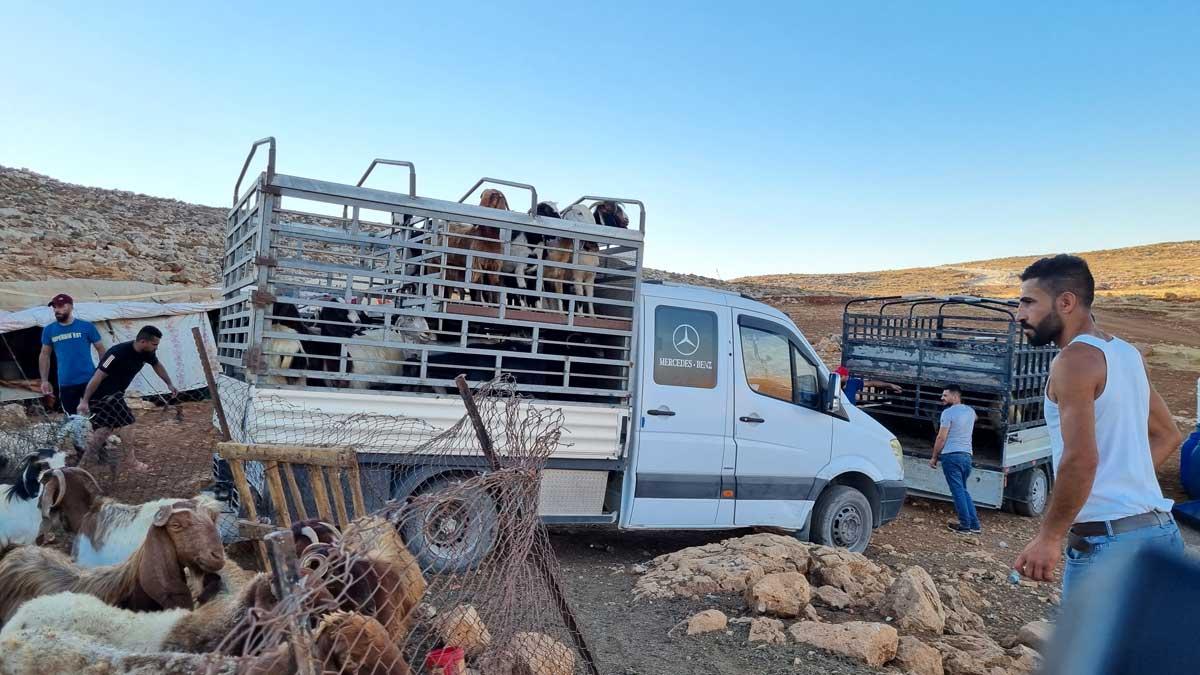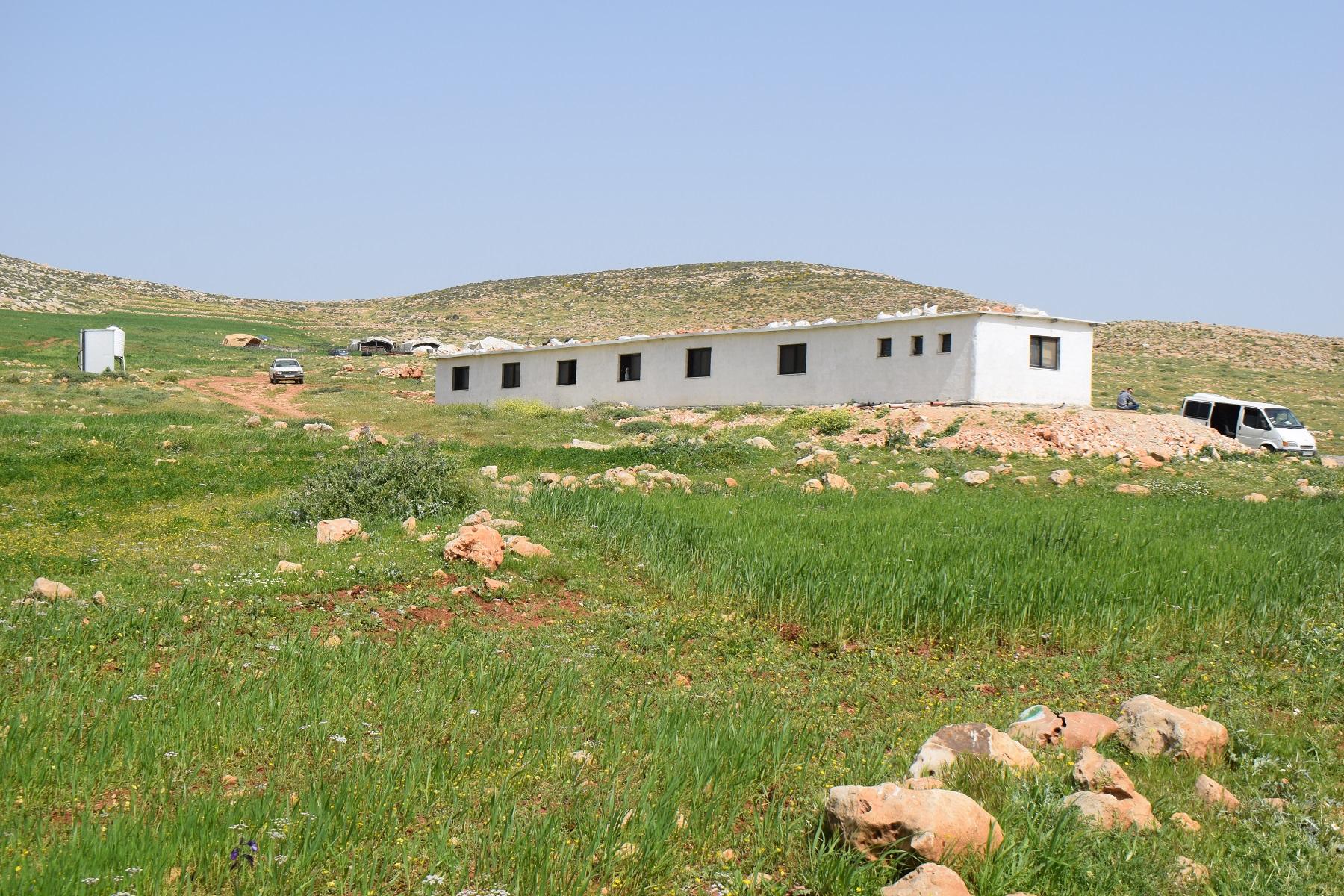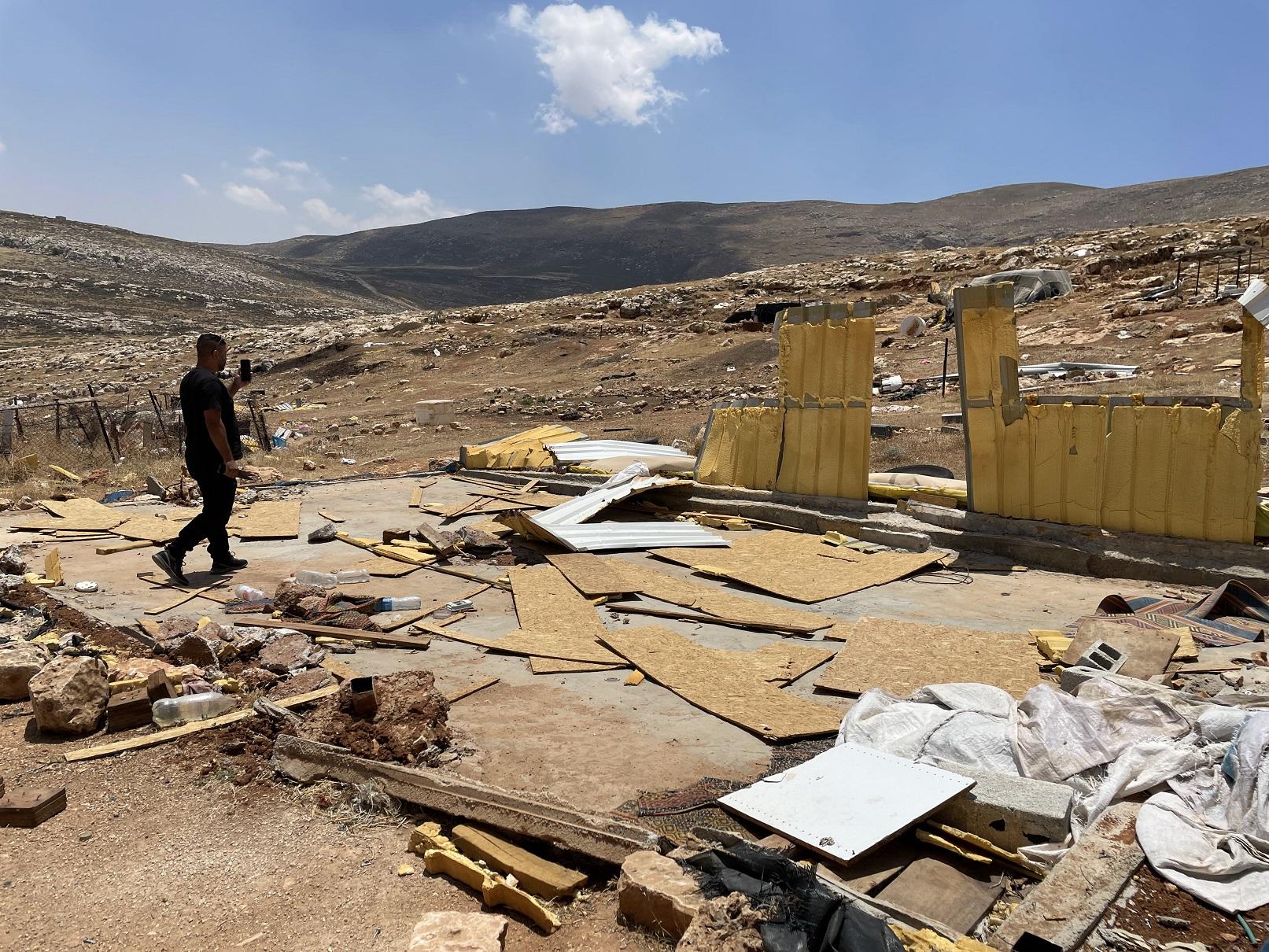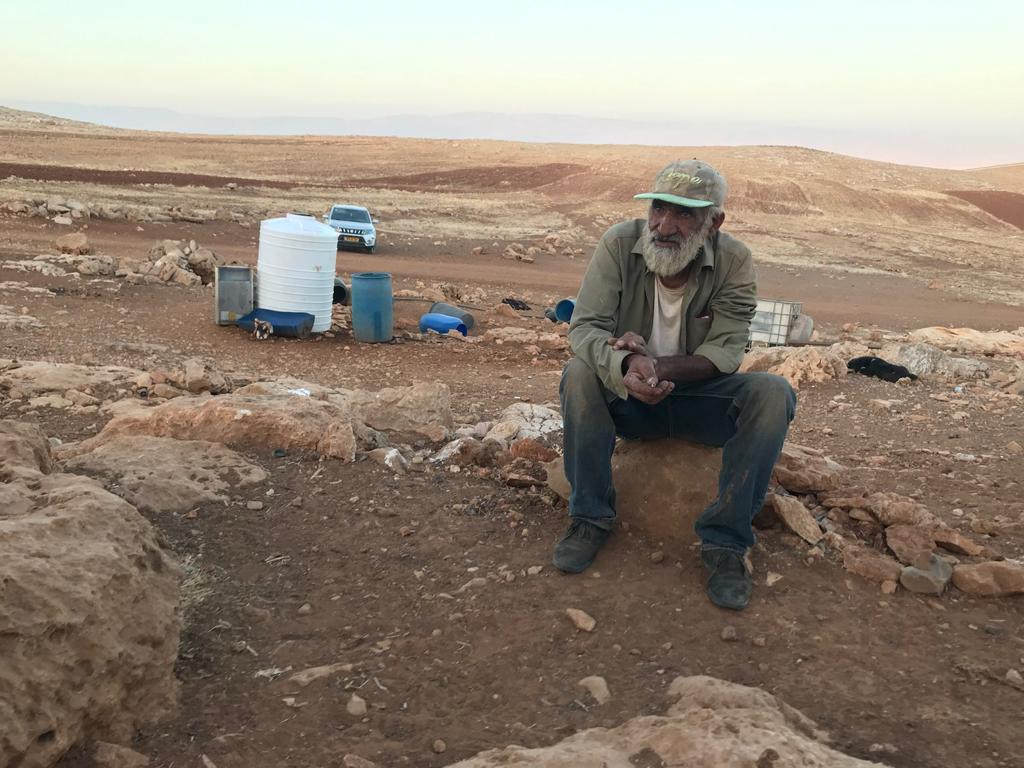
For many years we have been very involved in what is happening in the Jordan Valley, frequently visiting the families from the poor Palestinian shepherd communities there, and helping them as much as possible. Israel's ambition to take control of lands in the Valley is as long as the days of occupation. Now the method has been streamlined - the settlers are taking over vast areas by building buildings, expelling Palestinian shepherds from their pasture lands, riding on ATVs and horses and with the help of dogs and drones. They are damaging the scant water supply and forcefully appropriating natural water sources. Endless destruction day and night.
- El Kaboun lies to the east of the Kochav HaShachar quarries. Its inhabitants are Palestinians from the Ka’abana tribe, who originate from the Beer Sheva area and were deported from the Negev to the West Bank in the late 1940s and early 1950s, as part of a policy aimed at emptying the Negev of its Bedouin inhabitants. Most of the community's buildings were built on private Palestinian land, a small part on plots that were registered during the Jordanian period as "state lands” and were transferred by the Civil Administration
 to the Binyamin Regional Council. Two years ago, two large communities lived there. In 2021, both communities were forcibly evacuated, then the villagers migrated to the northeast.
to the Binyamin Regional Council. Two years ago, two large communities lived there. In 2021, both communities were forcibly evacuated, then the villagers migrated to the northeast. - Since then, illegal and extremely violent outposts have been established in the area near Kochav Hashachar - Kochav Hashachar East, Maoz Esther, Ma'ale Shlomo, Micha's Farm, Micha's New Farm, Ahavat Haim, and Malachey HaShalom, which was recently accepted as a recognized settlement. There are several more that don't have a name yet. Some of the 'outposts' are nothing more than a single trailer with a single adult or a young family and a few hilltop youth.
- The residents of the outposts began to arrive and rampage in the nearby Palestinian settlements. They injured and killed sheep and destroyed cultivated fields, until the inhabitants decided that it was better to leave and migrate elsewhere. A year ago, the residents of Ras al-Tin left, after an extremely violent attack in which one woman was seriously injured and two of her sons were arrested by the army because they tried to protect her. Half a year ago, the residents of Ein Samiya gave up, and recently the residents of El Kaboun are evacuating, after the violent outpost of Malachey HaShalom (Angels of Peace…) paved a dirt road directly to their encampment and another outpost, Dorot, was erected on the hill above them.

Report from the Jordan Valley, Nurit Popper, Dafna Banai and guest, 11.6.23
"It's not so nice to see a closed kindergarten" the children of Israel sing in the afternoon, knowing that the kindergarten will open the next day and everything will be served to them on a silver platter. But to see a closed school, its desks overturned, its windows shattered and the subject of the third grade lesson still written on the blackboard. Above it a childish drawing of a bulldozer... the same bulldozer that destroyed the child's house several times... it's a fist punch in the gut.
- Ein Samiya. Its inhabitants originated from Be'er Sheva, from where they were expelled in 1948, they roamed the West Bank - south of Mount Hebron, the Ramallah area, Khan al-Ahmar, until in 1958 they arrived here and pitched their tents. The whole area was completely empty. I look around and it's still empty, but not completely. Small white buildings overlook it over every hill. Everything else is desolate and empty. Huge spaces that can be enough for everyone, and many others, to live here without bumping into each other. But the long-sideburned Israeli settlers want everything. The Land of Israel was given to them by the Supreme Providence and in return they must expel all non-Jews…
- The 270 residents of Ein Samiya suffered for many years at the harsh hand of the IDF, which destroyed their homes and forbade the use of the vast eastern area on the grounds of it being a fire zone. But the residents did not give up and clung to the land, mainly because they never had a choice. But the dozens of illegal outposts that recently sprang up around them broke them. Daily violence, herd thefts and roadblocks, in addition to the withholding of water and demolition orders for the school. All of this was too much for them. Two weeks ago they dismantled their homes, folded their tents and loaded their meager belongings onto trucks and moved to larger villages, where they hope to be more protected"...

"This expulsion is not just the work of colonists. The State of Israel is behind them, acting through the colonist “hills youth”. The army and the police, who harass the shepherd communities in the Palestinian Jordan Valley until they finally leave. When they desert their homes out of sheer desperation, the state will take over the lands and create more and more colonies.
The guilt of this crime is shared by all the state’s citizens – who remain silent, enable, yell “Shame!” and “Democracy” in the streets but then say, “Don’t mentioned occupation, it is irrelevant right now.” The US is also guilty, slapping Israel lightly on the wrist – and the European Union who only two years ago financed the building of a schoolhouse here – and still has friendly relations with the authorities who have chased the schoolchildren out. The slack condemnation or lack of response are equal to silent endorsement. Thus, guilty are all those who did not stop the expulsion of Ras A-Tin, Ein Samiya and Kaboun (all in the past year). Moreover – they do not stop the next expulsion that is already in the works on the hilly colonist outposts and in the halls of the Knesset, Israel’s Parliament."

